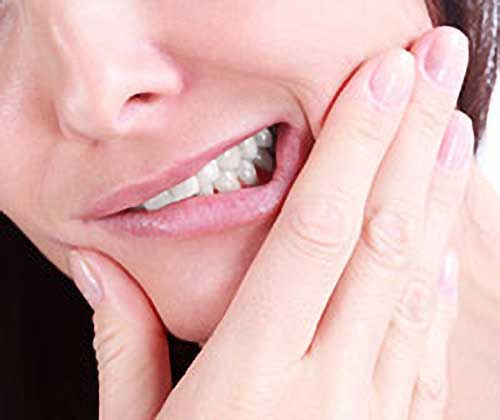What is a Toothache?

Good oral health is essential to prevent toothaches and other dental diseases. A toothache is a pain in or around a tooth that may be caused by tooth decay, an abscessed tooth or infected gums. Other signs of having a toothache include having a tooth fracture or a damaged filling, and repetitive motions, such as chewing gum or grinding teeth.
Tooth decay (cavities) usually occurs in children and young adults but can affect people of any age because the exposed root surfaces of teeth can be susceptible to decay as we grow older. Seniors are also prone to tooth decay, which is mostly due to taking multiple medications.
Tooth decay starts when acids produced by bacteria in plaque eat away at tooth enamel. Plaque is a paste-like substance that adheres to the teeth and is formed by the combination of bacteria, acid, food, and saliva. Bacteria in plaque convert all foods, especially sugar and starch, into acids. The acids in plaque dissolve the enamel of the tooth, causing tooth decay or cavities.
How do you identify a toothache? Here are some of the symptoms:
- Sensitivity to hot, cold or sweet foods
- Pressure or swelling around the tooth
- Fever
- A headache
- Foul-tasting drainage from the infected tooth
- Tooth pain that may be sharp, throbbing, or constant
In some people, pain results only when pressure is applied to the tooth.
Visit your dentist as soon as possible for your emergency dental examination and treatment if your toothache lasts longer than 1 or 2 days. Emergency dental symptoms contain having a fever, earache, or pain upon opening your mouth. Proper identification and treatment of dental infections are important to prevent its spread to other parts of the face and skull and possibly even to the bloodstream.
To treat your toothache, your dentist will examine your mouth, teeth, gums, jaws, tongue, throat, sinuses, ears, nose, and neck. X-rays may be taken as well as other tests, depending on what your dentist suspects is causing your toothache. Treatment for a toothache depends on the cause. If a cavity is causing the toothache, your dentist will fill the cavity or possibly extract the tooth, if necessary. An antibiotic may be prescribed if there is a fever or swelling of the jaw.
Since most toothaches are the result of tooth decay, following good oral hygiene practices can prevent toothaches. Good oral hygiene practices consist of brushing regularly with a toothpaste that contains fluoride, flossing at least once daily, and seeing your dentist twice a year for professional cleaning. In addition to these practices, eat foods that are low in sugar and ask your dentist about sealants and fluoride applications.
If you have a cavity, the standard treatment is a filling. Saddleback Dental Centre in South Edmonton is pleased to provide mercury-free composite tooth fillings, which is a safe material that allows us to match your tooth’s color. Alternatively, if you are experiencing extreme dental pain, Saddleback Dental also acts as an emergency dental clinic that provides emergency dental diagnosis and treatment by providing swift solutions and treatment plans. Contact us today to learn more about emergency dental services.
